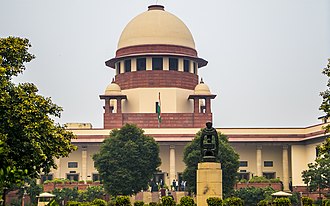New Delhi — The Supreme Court has issued an important interim order on the amended Waqf Act, providing clarity on which provisions have been temporarily stayed and which continue to remain in force.
A bench of the apex court noted growing concerns from petitioners who argued that certain changes in the Act could undermine community rights and create administrative hurdles. Responding to these submissions, the Court decided to stay specific provisions while allowing the rest of the Act to function until a final judgment is delivered.
According to the order, the sections dealing with expanded powers of the Waqf Boards and certain clauses related to direct government oversight have been put on hold. However, key operational provisions regarding property management, registration, and dispute resolution remain intact, ensuring that the functioning of Waqf institutions is not completely disrupted.
The Supreme Court clarified that the stay is only interim in nature and does not amount to striking down any part of the law. The case will now proceed for a detailed hearing, where the constitutional validity and broader implications of the amendments will be examined.
The ruling has drawn mixed reactions. Community leaders welcomed the stay on contentious provisions, saying it was a relief to those fearing misuse of authority. On the other hand, government officials insisted that the amendments were intended to bring transparency and accountability to Waqf management.
As the legal battle unfolds, the spotlight remains on how the Court will balance community autonomy, state oversight, and constitutional principles in its final decision on the amended Waqf Act.

